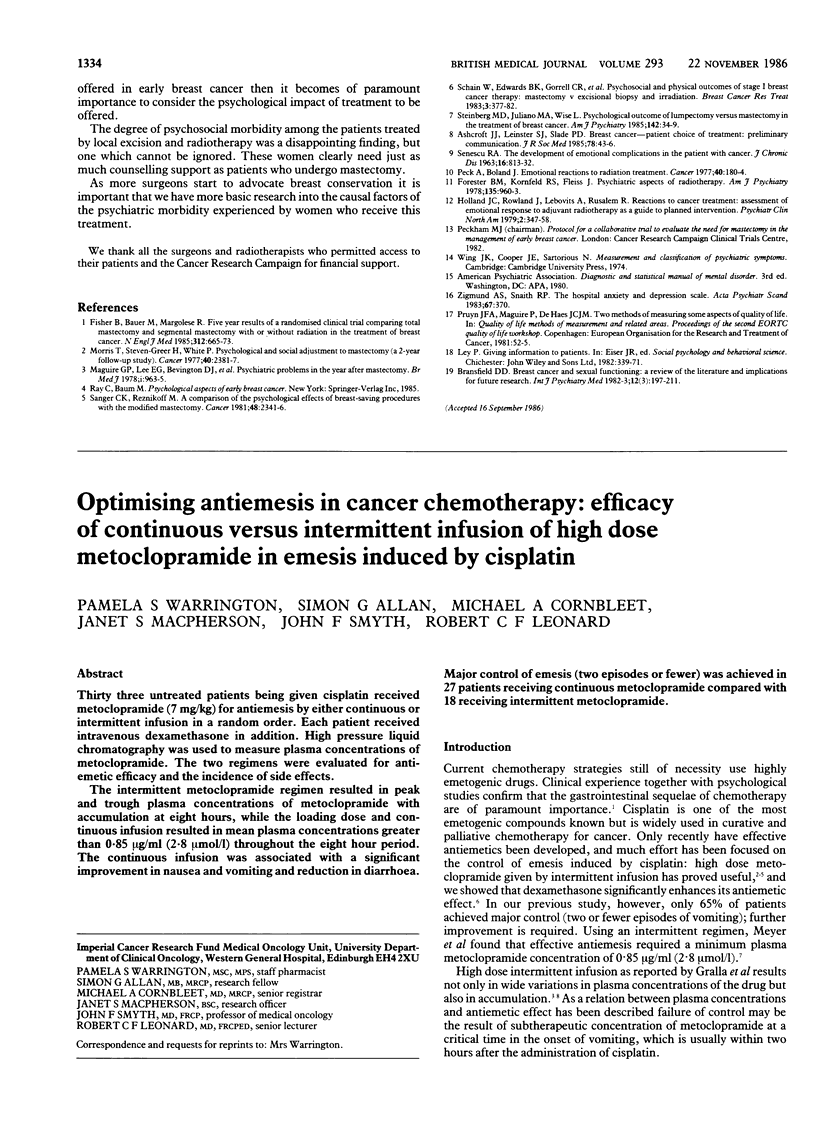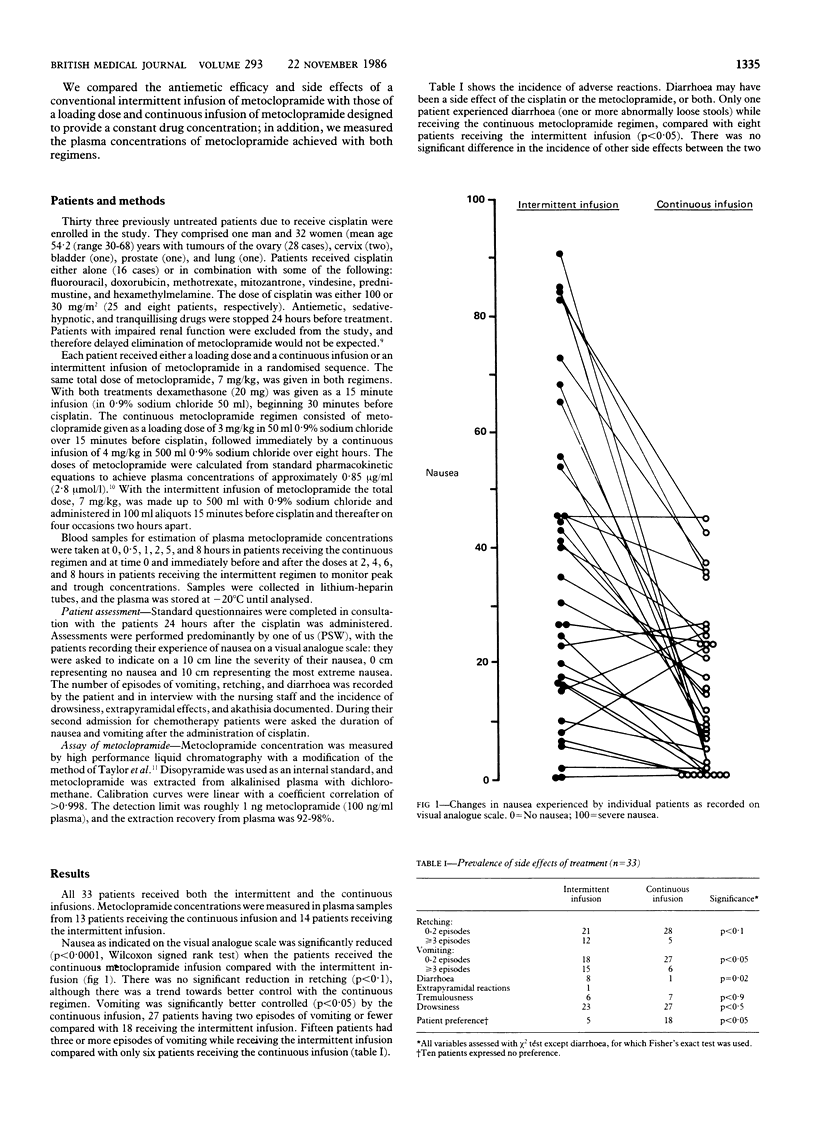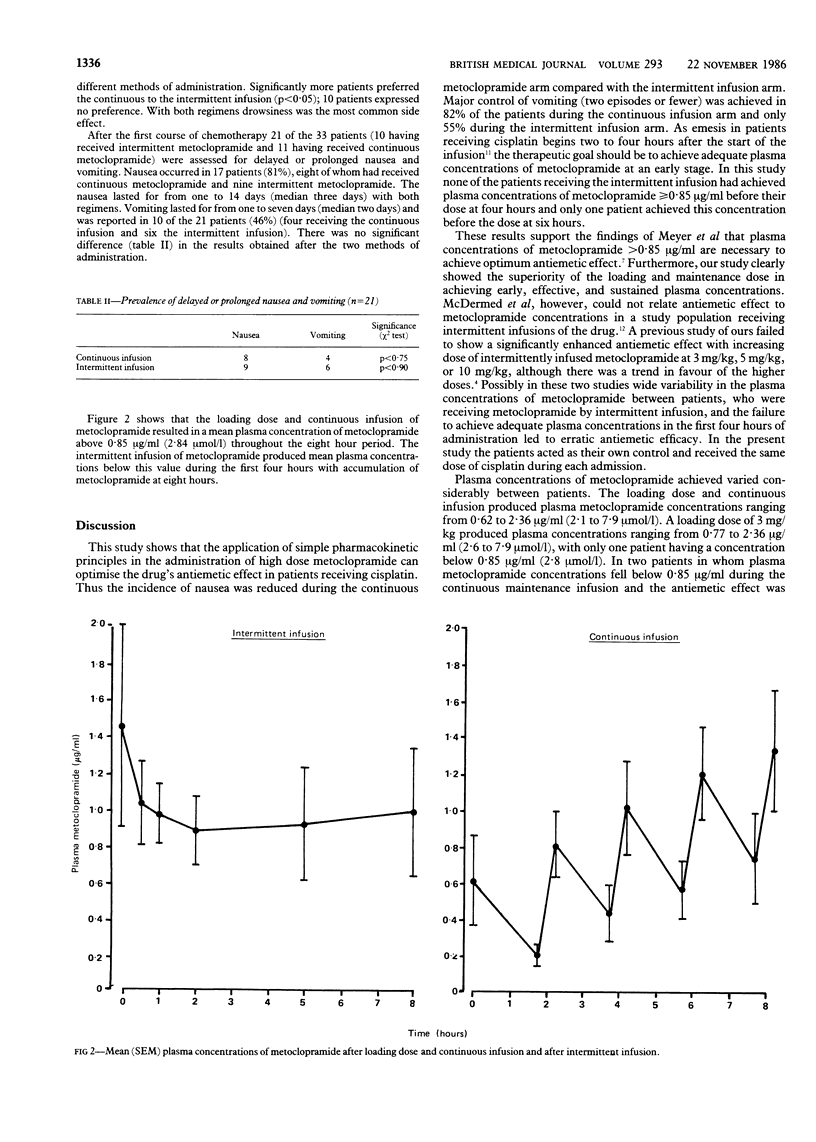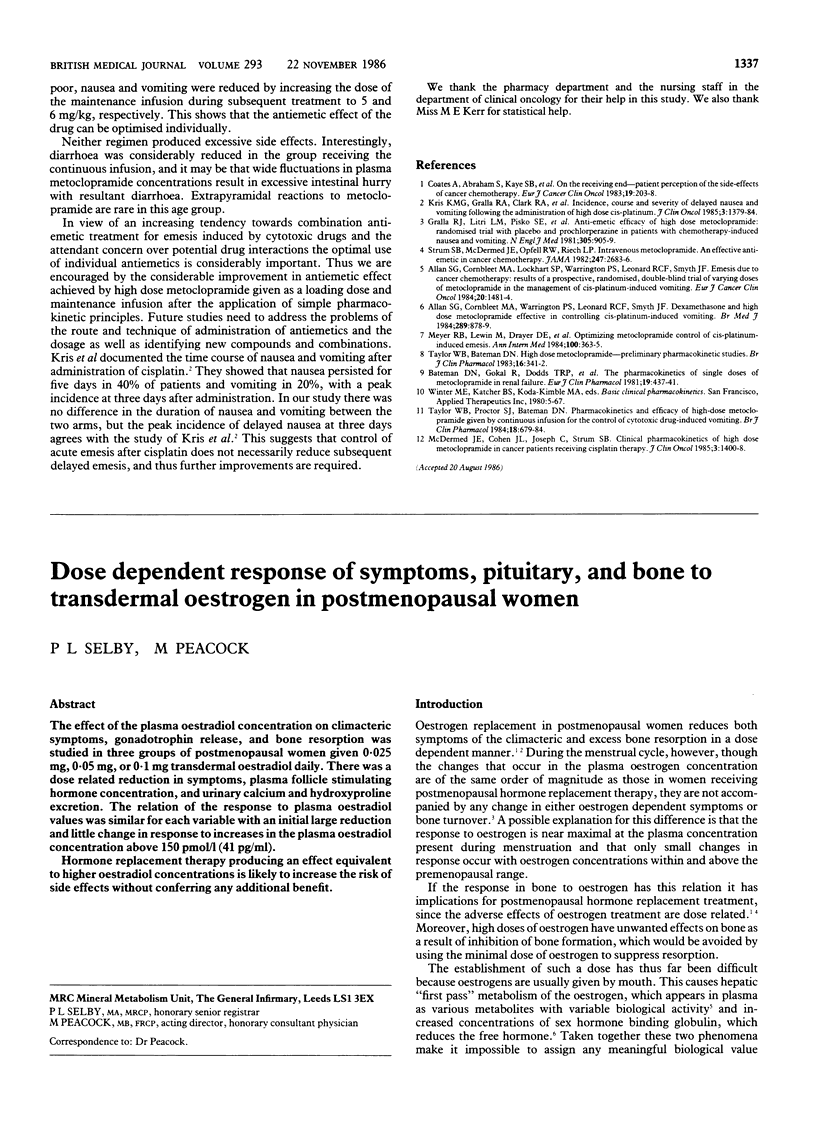Abstract
Thirty three untreated patients being given cisplatin received metoclopramide (7 mg/kg) for antiemesis by either continuous or intermittent infusion in a random order. Each patient received intravenous dexamethasone in addition. High pressure liquid chromatography was used to measure plasma concentrations of metoclopramide. The two regimens were evaluated for antiemetic efficacy and the incidence of side effects. The intermittent metoclopramide regimen resulted in peak and trough plasma concentrations of metoclopramide with accumulation at eight hours, while the loading dose and continuous infusion resulted in mean plasma concentrations greater than 0.85 micrograms/ml (2.8 mumol/l) throughout the eight hour period. The continuous infusion was associated with a significant improvement in nausea and vomiting and reduction in diarrhoea. Major control of emesis (two episodes or fewer) was achieved in 27 patients receiving continuous metoclopramide compared with 18 receiving intermittent metoclopramide.
Full text
PDF



Selected References
These references are in PubMed. This may not be the complete list of references from this article.
- Allan S. G., Cornbleet M. A., Lockhart S. P., Warrington P. S., Leonard R. C., Smyth J. F. Emesis due to cancer chemotherapy: results of a prospective, randomised, double-blind trial of varying doses of metoclopramide in the management of cis-platinum-induced vomiting. Eur J Cancer Clin Oncol. 1984 Dec;20(12):1481–1484. doi: 10.1016/0277-5379(84)90140-8. [DOI] [PubMed] [Google Scholar]
- Bateman D. N., Gokal R., Dodd T. R., Blain P. G. The pharmacokinetics of single doses of metoclopramide in renal failure. Eur J Clin Pharmacol. 1981;19(6):437–441. doi: 10.1007/BF00548588. [DOI] [PubMed] [Google Scholar]
- Coates A., Abraham S., Kaye S. B., Sowerbutts T., Frewin C., Fox R. M., Tattersall M. H. On the receiving end--patient perception of the side-effects of cancer chemotherapy. Eur J Cancer Clin Oncol. 1983 Feb;19(2):203–208. doi: 10.1016/0277-5379(83)90418-2. [DOI] [PubMed] [Google Scholar]
- Gralla R. J., Itri L. M., Pisko S. E., Squillante A. E., Kelsen D. P., Braun D. W., Jr, Bordin L. A., Braun T. J., Young C. W. Antiemetic efficacy of high-dose metoclopramide: randomized trials with placebo and prochlorperazine in patients with chemotherapy-induced nausea and vomiting. N Engl J Med. 1981 Oct 15;305(16):905–909. doi: 10.1056/NEJM198110153051601. [DOI] [PubMed] [Google Scholar]
- McDermed J. E., Cohen J. L., Joseph C., Strum S. B. Clinical pharmacokinetics of high-dose metoclopramide in cancer patients receiving cisplatin therapy. J Clin Oncol. 1985 Oct;3(10):1400–1408. doi: 10.1200/JCO.1985.3.10.1400. [DOI] [PubMed] [Google Scholar]
- Strum S. B., McDermed J. E., Opfell R. W., Riech L. P. Intravenous metoclopramide. An effective antiemetic in cancer chemotherapy. JAMA. 1982 May 21;247(19):2683–2686. doi: 10.1001/jama.247.19.2683. [DOI] [PubMed] [Google Scholar]
- Taylor W. B., Proctor S. J., Bateman D. N. Pharmacokinetics and efficacy of high-dose metoclopramide given by continuous infusion for the control of cytotoxic drug-induced vomiting. Br J Clin Pharmacol. 1984 Nov;18(5):679–684. doi: 10.1111/j.1365-2125.1984.tb02529.x. [DOI] [PMC free article] [PubMed] [Google Scholar]


